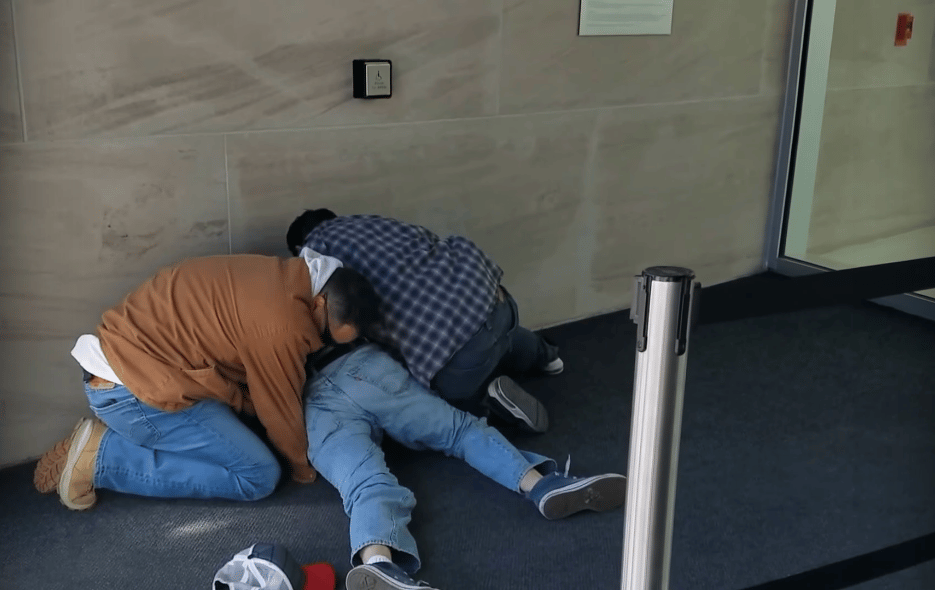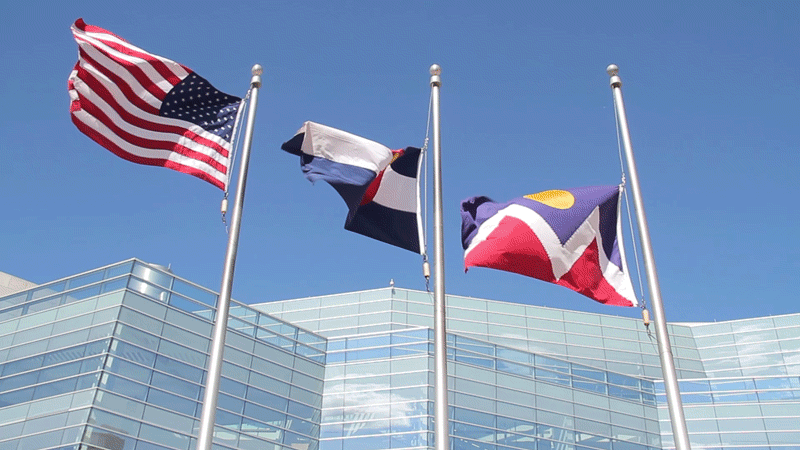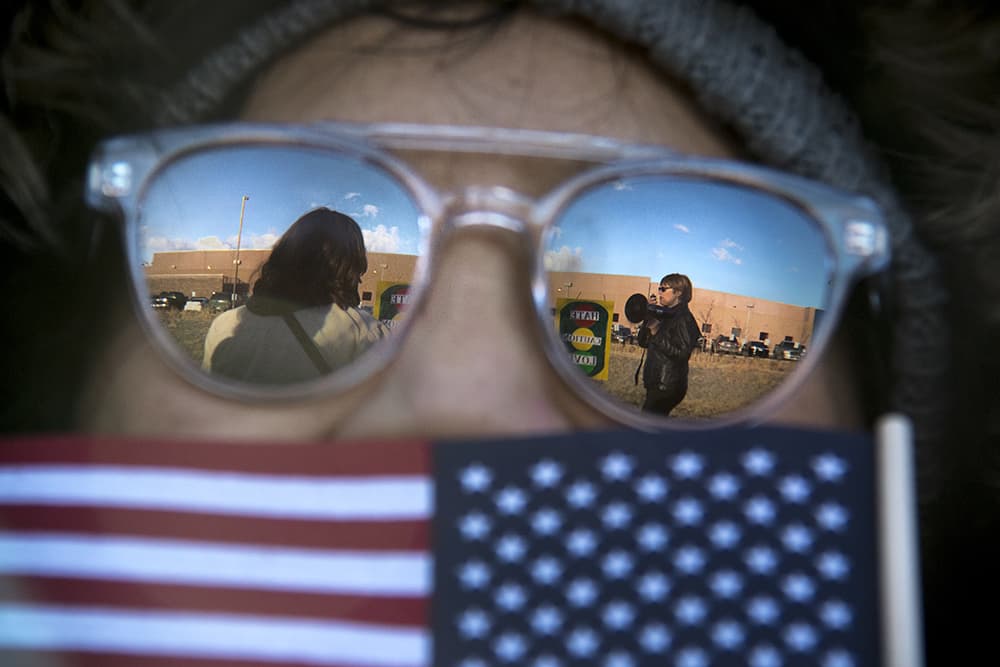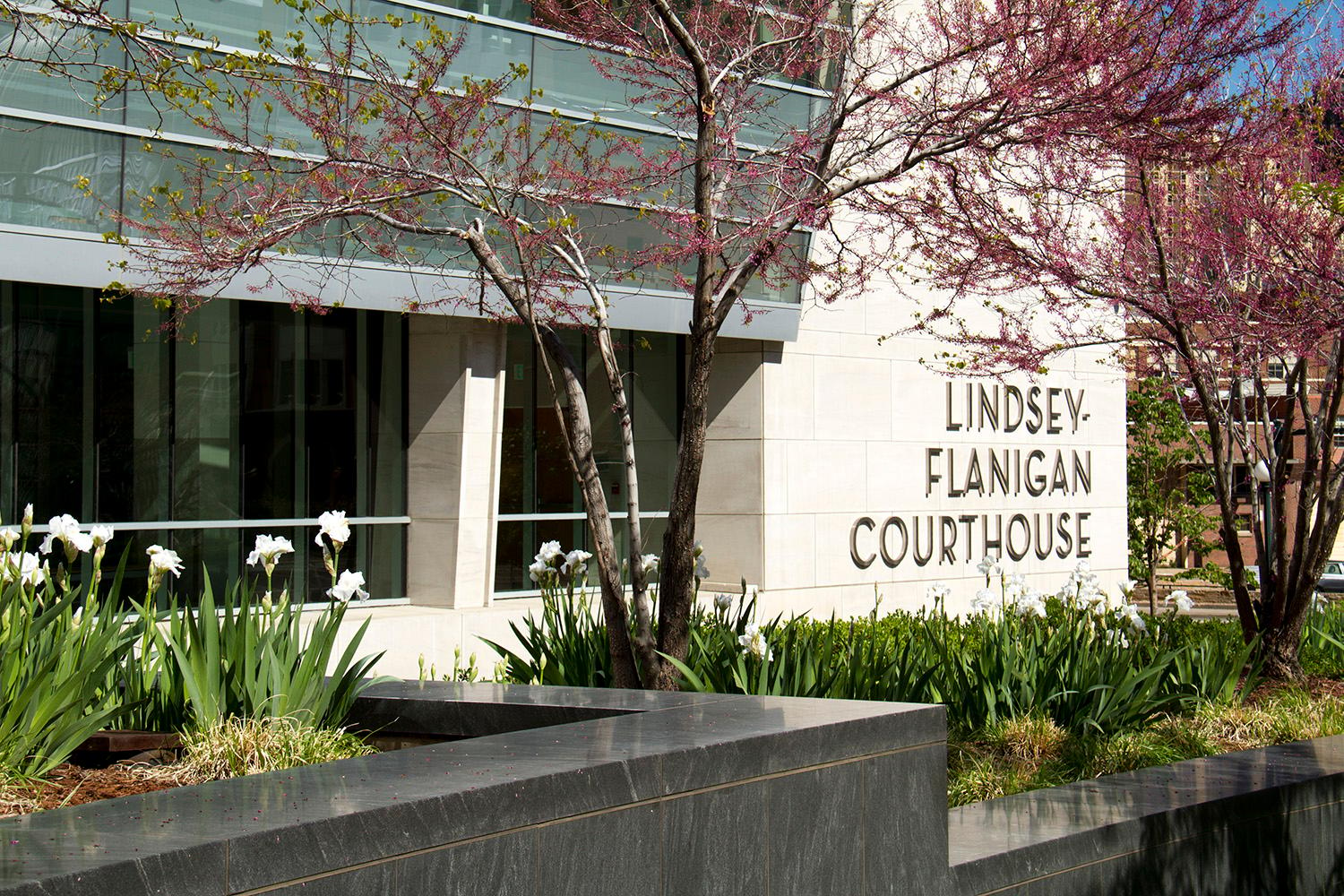
Denver has asked federal Immigration and Customs Enforcement agents to stay away from the courthouses. ICE isn't going to listen, as demonstrated by new video of immigrant arrests at Denver's courts and a statement released by the agency today.
In the past, ICE has used this tactic to detain women who were seeking restraining orders and people who were paying parking tickets or even getting married. The agency had largely ended the practice, but it's been reported recently in California, Arizona, Texas and Colorado, as the Los Angeles Times reported.
Here in Denver, it poses a hard question: Will the city go beyond simple requests and try to formally keep ICE agents out of the local justice system? Advocates and experts argue the city may have the power, but Denver officials say that they simply don't have the authority to stop the feds.
Why immigrant advocates are concerned:
At least two people have been detained by ICE agents near Denver courts in recent weeks. Both were taking care of other legal business; ICE presumably knew that they were due in court and used the opportunity to detain them for potential deportation.
This directly contradicts the city's wishes. Denver officials have described the courts as "sensitive locations," arguing that if undocumented immigrants are afraid to go to court, then the prosecution of crimes is hindered and police-community relationships are compromised. For example, an undocumented person who witnessed a crime might be afraid to come to court.

Why ICE doesn't care:
ICE policy does call for agents to generally avoid sensitive locations, but it does not consider courthouses to be in that category, as spokesman Carl Rusnok wrote in an email. Places of worship, schools and hospitals are considered to be sensitive.
"Many of the arrest targets ICE has sought out at or near courthouses are foreign nationals who have prior criminal convictions in the U.S.," Rusnok wrote.
In these specific cases, one of the detained men had been a "fugitive" from a final deportation order for five years and had two misdemeanor convictions, according to Rusnok. Denverite could not immediately confirm the details of the person's record.
The second person had two convictions for driving under the influence and faced two additional charges, according to ICE.
Rusnok essentially argued that cities have brought this upon themselves. Tracking "priority fugitives is highly resource-intensive," and the courthouse is an easy place to find them.
ICE would rather detain people in jails or prisons, he wrote, but now "that some law enforcement agencies no longer honor ICE detainers, these individuals, who often have significant criminal histories, are released onto the street, presenting a potential public safety threat."
It's true that Colorado sheriffs generally ignore ICE requests that local jails hold onto undocumented immigrants beyond their release dates, mostly due to the potential Fourth Amendment violation that creates. However, Denver does notify ICE of the release of undocumented immigrants, and that information is publicly available anyway.

What Denver could do, theoretically:
There are mounting signs that ICE is increasing its use of the courthouse tactic, according to The Los Angeles Times.
A panel of immigration law experts meeting here on Tuesday suggested that cities such as Denver have a legal argument against ICE's actions at courthouses. The argument, in short, is that the feds can't override local governments in this case, and that the city can simply set rules about what's acceptable in courts.
"I’m aware of no reason that Denver authorities could not say, ‘You can come in, it’s open to the public, but there’s certain activities you can’t do, like wrestling people to the ground and handcuffing them in the lobby,'" said Mike Wishnie, a deputy dean and law professor at the Yale Law School.
What Denver's doing, actually:
The city already is taking actions that protect immigrants from ICE, to some degree. As Liz Geraldi reported, the city is allowing people to mail in their pleas in traffic court cases, keeping them out of the building. The city also may slightly shorten (by a day) sentences for lower-level crimes, which could keep people off ICE's radar.
But Denver officials are not so sure about the argument that they could outright stop ICE from operating near courthouses -- which, to be sure, would be a largely untested strategy that would greatly inflame tensions with ICE.
“We’ve said time and time again that we’re not going to step in and assist, but we’re also not going to step in to deter that arrest either,” said city spokeswoman Jenna Espinoza.
“That’s not our jurisdiction. We don’t have the authority to ban anyone, whether they’re ICE agents or journalists.”
The state courts system also doesn't seem to have much appetite to challenge ICE on this.
"The thing is, in all the courthouses around the state, we are tenants, so we don’t have controls over the facilities themselves," said Jon Sarché, spokesman for the Colorado Judicial Branch.
"For the large part ... the sheriff’s department is responsible for security in those buildings," he said.
He acknowledged that judges can and do set limits on behavior in court buildings but said that's a rare occurrence.
"Really, they tend not to do that except in extraordinary circumstances, for example, the high-security gang trial in the Denver city and county building, the theater shooting trial," he said. "There is some authority there, but the bottom line is we’re tenants."
What's happening elsewhere:
There's a general push for local and state governments to "disentangle" themselves from ICE's enforcement action, but I've not seen any recent examples of a direct challenge to ICE's access to a courthouse.
Democrats in the U.S. House did submit a bill this year that would bar ICE agents from courthouses, but that idea is not at all likely to get past the Republican-controlled Congress.











